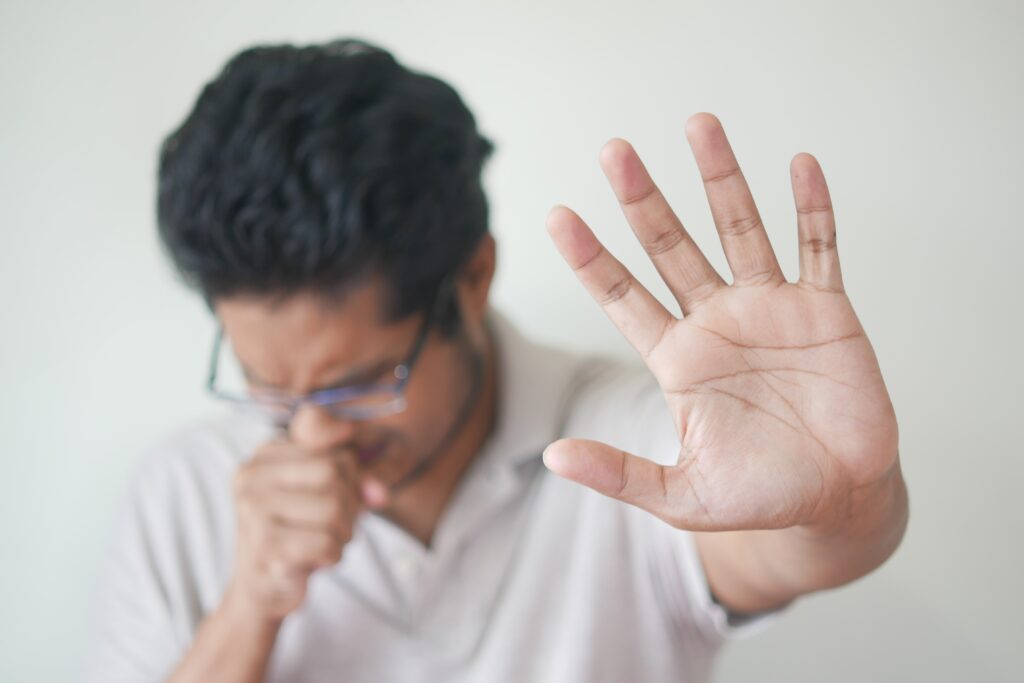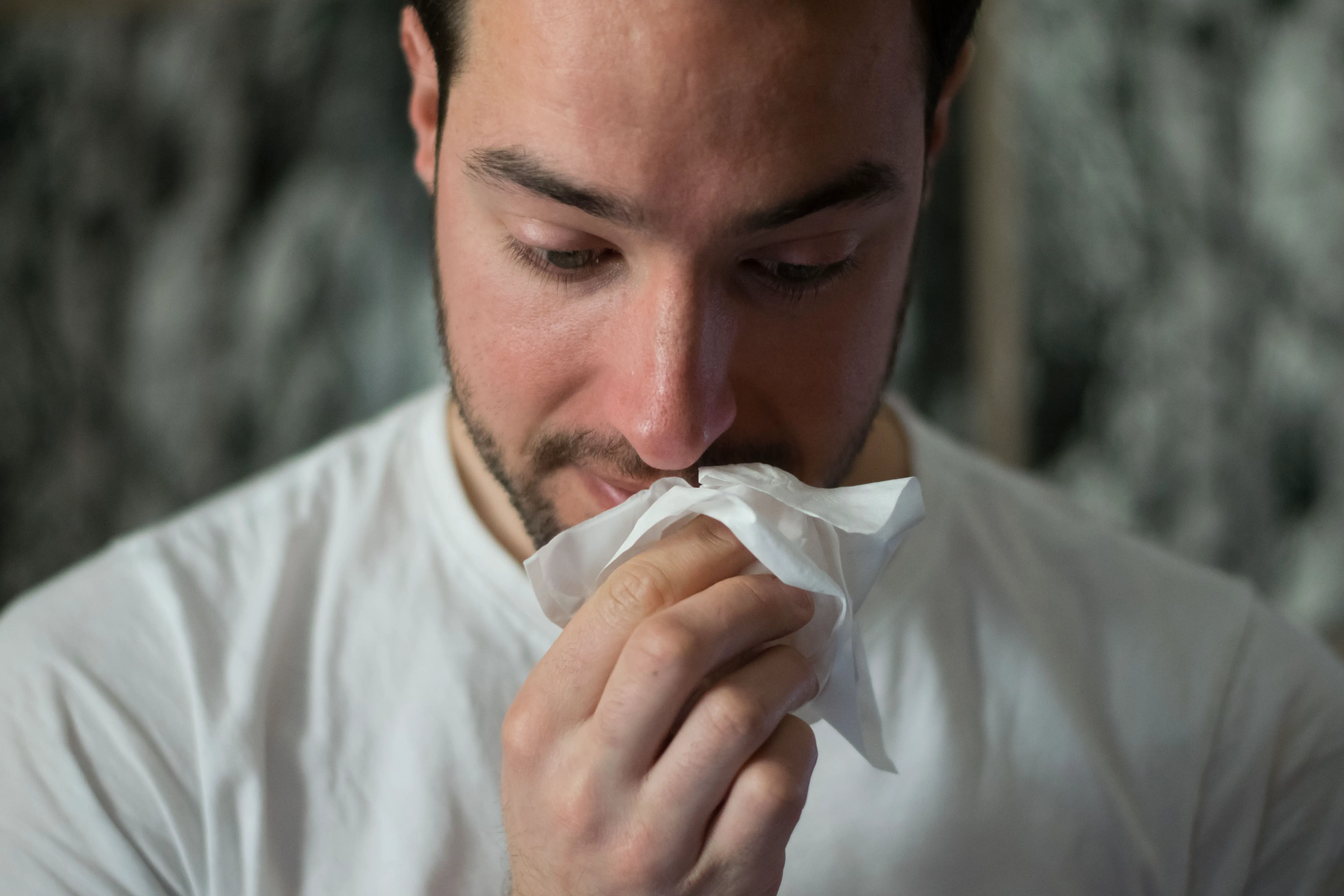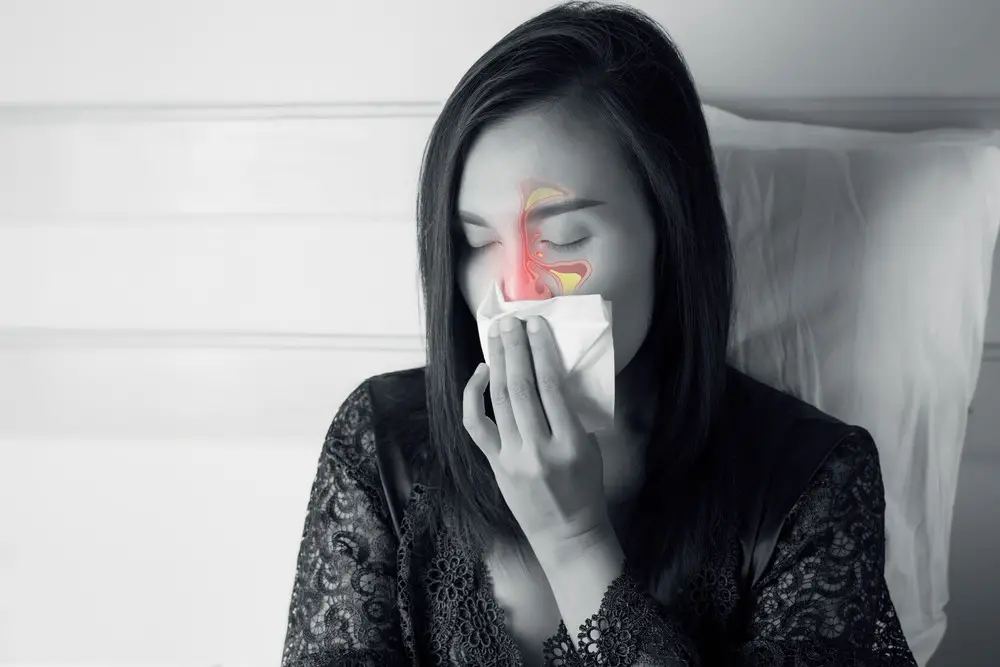As a BetterHelp affiliate, we receive compensation from BetterHelp if you purchase products or services through the links provided
Do you suffer from allergies and find it difficult to sleep at night? If so, you’re not alone. Millions of people around the world deal with the same problem. This article will discuss eight tips that can help you get a better night’s sleep when you have allergies.
Allergies And Sleep
Allergies are a reaction of the immune system to a foreign substance, such as pollen, dust, or pet dander. The immune system produces antibodies to fight off the invader. This process can cause symptoms like sneezing, a runny nose, and watery eyes.
There are two types of allergies: seasonal and year-round. Pollen from trees, grasses, and weeds is usually the source of seasonal allergies. These allergies trigger nasal congestion that makes it hard to fall asleep. They typically occur in the spring and fall. Year-round allergies are usually caused by indoor allergens like dust mites and pet dander.

Allergic Rhinitis
Allergic rhinitis, or hay fever, is the most common type of allergy. It affects about 30% of adults and 40% of children in the United States.
Allergies can make it challenging to get a good night’s sleep for several reasons. First, they can cause nasal congestion, making breathing hard through your nose. This can lead to snoring and poor sleep quality. Second, allergies can cause itchiness and irritation, making it hard to fall asleep and stay asleep. Third, they can cause fatigue and daytime sleepiness that make it hard to fall asleep at night. The allergy medication helps you to improve your sleep. Nasal decongestant sprays clear your stuffy nose but don’t use them for more than 3 days during allergy season.
How Do Allergies Affect Sleep?
Allergies can affect sleep in several ways. First, they can cause difficulty falling asleep due to the abovementioned symptoms. Second, they can cause nighttime awakenings due to the need to urinate or because of coughing and congestion. Third, they can cause daytime fatigue due to the lack of quality sleep at night.
If you have allergies, you know how difficult it can be to get a good night’s sleep. Allergies can cause several problems that make it hard to fall asleep and stay asleep. These include sneezing, congestion, runny nose, itchy eyes, and watery eyes.
There are a few ways that allergies can affect your sleep. The most common way is by causing difficulty falling asleep due to the symptoms listed above. Allergies can also cause you to wake up in the middle of the night due to coughing, congestion, or the need to urinate. Lastly, allergies can cause daytime fatigue due to the lack of quality sleep at night.
While there is no cure for allergies, there are some things you can do to minimize their impact on your sleep.
What Kind Of Sleep Disturbances Can Come From Allergies?
The most common sleep disturbance that comes from allergies is difficulty falling asleep. This can be due to several allergy symptoms, including sneezing, congestion, runny nose, itchy eyes, and watery eyes. Allergies can also cause you to wake up in the middle of the night due to coughing, congestion, or the need to urinate. Lastly, allergies can cause daytime fatigue due to the lack of quality sleep at night.
Some people are blessed with never having had an allergic reaction, while others seem to suffer from one allergy or another all the time. For those who fall into the latter category, getting a good night’s sleep can be difficult. Allergies can cause several problems that make it hard to fall asleep and stay asleep. These include sneezing, congestion, runny nose, itchy eyes, and watery eyes.

Common Seasonal Allergies
Some common allergens include:
- Pollen from trees
- Grasses and weeds
- Dust mites
- Pet Allergies
How Can You Treat Allergies?
While there is no cure for allergies, there are some things you can do to minimize their impact on your sleep. These include:
- Taking an antihistamine before bedtime
- Wearing a dust mask when cleaning or doing other activities that stir up allergens
- Vacuuming regularly to reduce dust mite exposure
- Keeping pets out of the bedroom
- Taking a shower before bedtime to wash away pollen and other allergens
- Using a saline spray to flush out irritants from the nose
- Wearing an eye mask to reduce itchiness and watering eyes
While some of these tips may not be practical for everyone, they can help reduce the impact of allergies on your sleep. If you have severe allergies, you may also want to consult with an allergist to discuss other treatment options.
8 Useful Tips For Better Sleep
If you have allergies and trouble sleeping, you can do a few things to minimize the impact on your sleep. These include:
Use An Air Purifier:
Air purifiers can help remove allergens from the air, making it easier to breathe and sleep.
Keep Your Bedroom Clean:
Dust mites are a common allergen that can trigger allergies. Vacuuming regularly and dusting your bedroom can help reduce exposure to dust mites.
Wear A Dust Mask:
If you have to do activities that stir up allergens, like cleaning or yard work, wear a dust mask to avoid breathing them in.
Vacuum Regularly:
Vacuuming regularly can help reduce exposure to dust mites.
Take An Antihistamine:
An antihistamine before bedtime can help reduce allergy symptoms and make sleeping easier.
Wash Your Bedsheets Weekly:
Washing your bed sheets in hot water weekly can help kill dust mites.
Keep Pets Out Of The Bedroom:
If you’re allergic to pets, keep them out of your bedroom to avoid exposure.
Switching Up Your Medication Routine:
If you have seasonal allergies, you may only need medication during certain times of the year. Talk to your doctor about switching to a different type of medication that can be taken as needed instead of daily.

Hypoallergenic Sleep Products
There are several hypoallergenic sleep products available that can help reduce exposure to allergens. These include dust-proof pillow covers and mattress covers.
While there is no cure for allergies, there are some things you can do to minimize their impact on your sleep. By taking steps to reduce your exposure to allergens and using the medication as needed, you can help ensure a good night’s sleep.
Conclusion
Allergies can cause several problems that make it hard to fall asleep and stay asleep. However, there are some things you can do to minimize the impact on your sleep. These include taking an antihistamine before bedtime, wearing a dust mask when cleaning or doing other activities that stir up allergens, and vacuuming regularly to reduce dust mite exposure. If you have severe allergies, you may also want to consult with an allergist to discuss other treatment options.
Articles You Might Enjoy Reading
Best Stress Balls of 2022: Top Recommendations
Do Stress Balls Work (and How to Use Them)?
Distress vs Stress: What is the Difference?
12 Best Essential Oils for Stress
7 Best Teas for Stress Relief
- Left Arm Pain and Anxiety: Understanding the Relationship - November 23, 2023
- Anxiety Paralysis: Coping with Overwhelming Stress - November 23, 2023
- Anxious vs. Nervous: Differentiating Emotions and Responses - November 15, 2023
This site contains affiliate links to products. We will receive a commission for purchases made through these links.



